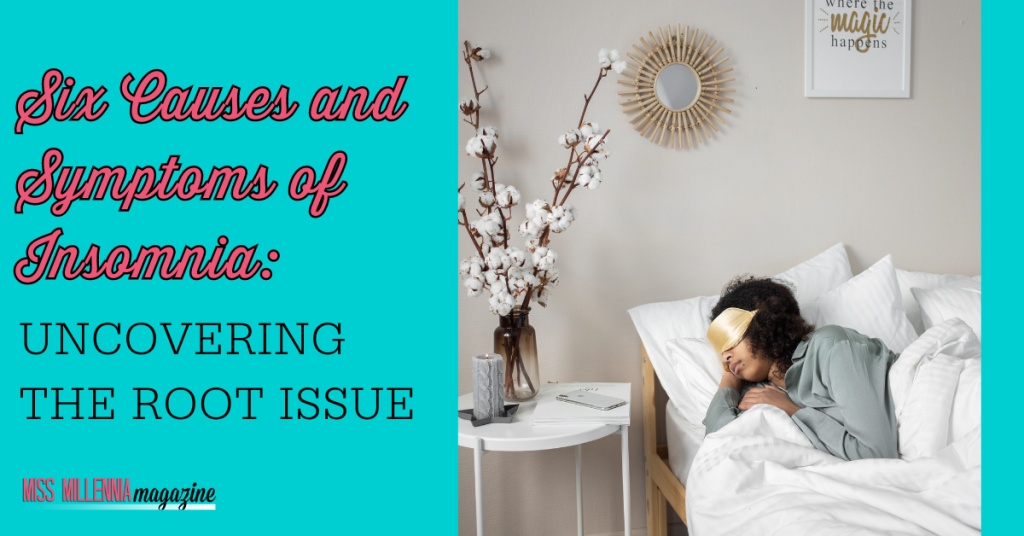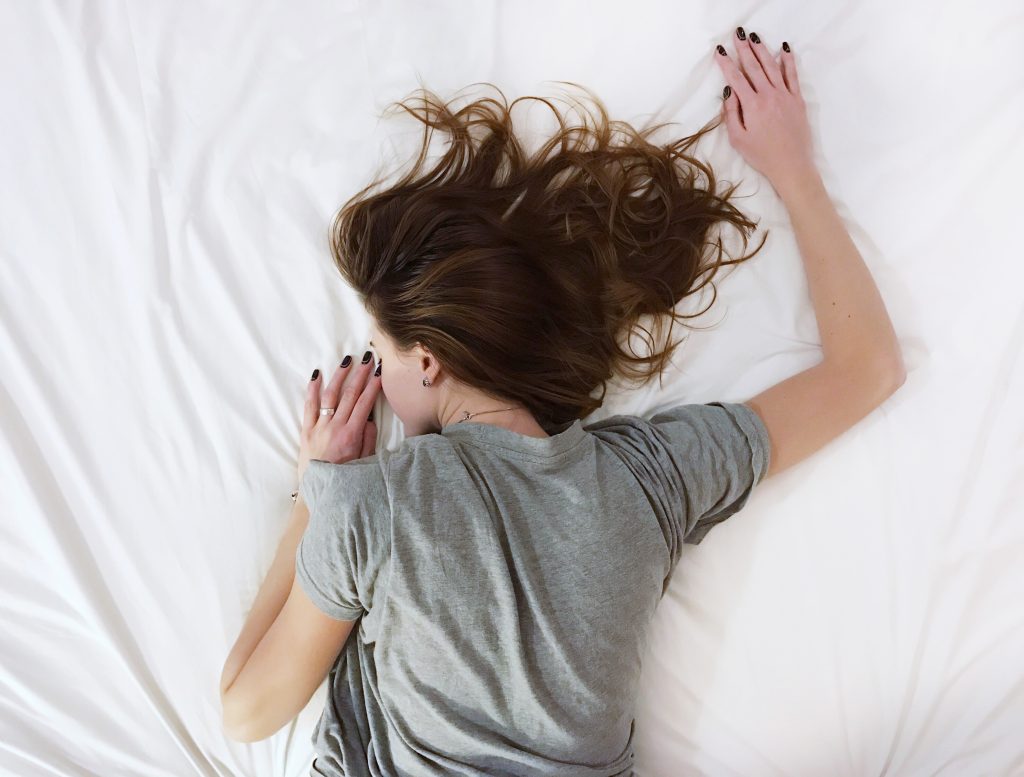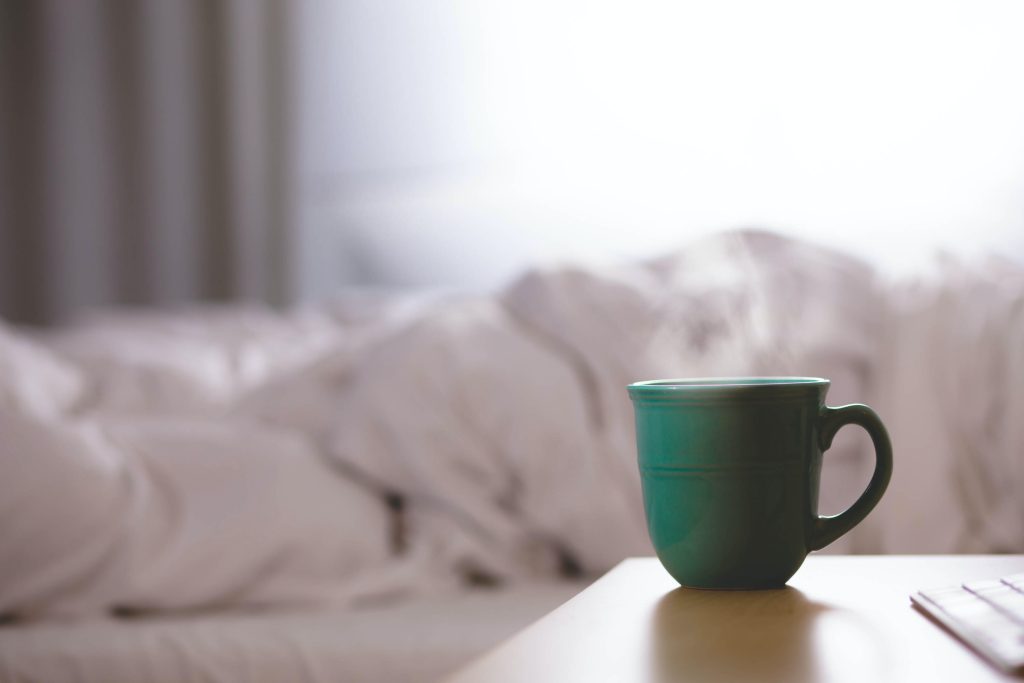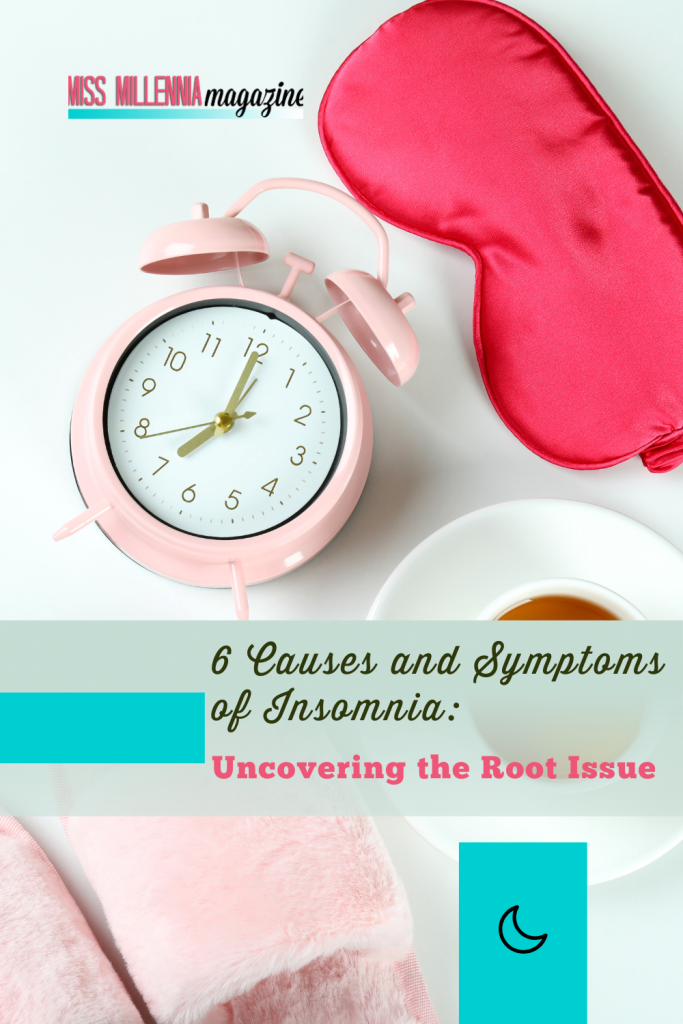Six Causes and Symptoms of Insomnia: Uncovering the Root Issue

Do you have difficulty falling asleep and staying asleep regularly? You’re not alone; insomnia is surprisingly common and affects millions worldwide. Unfortunately, this sleeping disorder can severely impact our physical and mental well-being, making everyday life difficult.
To guarantee that we can look after ourselves in the best possible way, it is essential to identify what lies at the heart of our sleeplessness to address those root issues directly. If you have chronic insomnia, you can get sleeping pills from zolpidemonlineuk.
In this blog post, we will explore the causes and symptoms of insomnia in detail and uncover ways to tackle any underlying disruptions preventing us from getting a good night’s rest.
Identify the Causes of Insomnia
For many people, sleepless nights are all too familiar. Insomnia can affect individuals of all ages and can be caused by many factors. One common cause of insomnia is stress; as the mind dwells on current worries and future anxieties, it can become nearly impossible to quiet the thoughts and drift off into a restful slumber.
Other causes of insomnia include physical discomforts, such as pain or discomfort, and lifestyle habits, like excessive caffeine or alcohol consumption. Understanding the root cause of insomnia is crucial for finding relief and promoting overall health and well-being.
Understand the Symptoms of Insomnia
Many of us have experienced the frustration of lying in bed for hours, unable to fall asleep. It is a common symptom of insomnia, a sleep disorder that affects millions of people. Insomnia can have a variety of causes, including stress, anxiety, or an underlying medical condition.

People with insomnia may also experience other symptoms, such as waking up frequently at night, feeling tired or irritable during the day, or having difficulty concentrating. If you’re struggling with insomnia, seeking help from a healthcare professional is essential. They can offer guidance on lifestyle changes, medication, or other treatments that may help you get the restful sleep you need.
Explore the Connection Between Stress and Sleep Deprivation
The relationship between stress and sleep deprivation is complex, and it’s one that’s been studied extensively by researchers in recent years. While stress can be a natural component of daily life, prolonged or excessive periods of stress can disrupt our natural sleep patterns and lead to insomnia, restless sleep, or even sleep apnea. Lack of sleep, in turn, can exacerbate stress, creating a vicious cycle that can be difficult to break.
However, we can improve our stress levels and rest quality, including practicing relaxation techniques, creating a relaxing sleep environment, and maintaining a healthy lifestyle. By prioritizing our sleep and managing stress levels, we can improve our overall well-being and feel more rested and refreshed throughout the day.
Uncovering Environmental Factors that Contribute to Poor Sleep
A good night’s sleep is crucial for our physical and mental health, yet many of us struggle with getting a good enough rest every night. While many factors affect our sleep quality, recent research has focused on uncovering environmental factors contributing to poor sleep. From loud noises to bright lights, our surroundings can significantly impact our ability to fall asleep and stay asleep throughout the night. Understanding these factors and changing our sleep environment can help us achieve restful and rejuvenating sleep.
Examine Dietary Habits and Their Impact on Quality of Sleep
Many of us have experienced a restless night’s sleep at some point in our lives, and our dietary habits are often the culprit behind it. What we eat and drink before bed can significantly impact the quality of our sleep. For example, eating heavy or spicy meals close to bedtime can lead to indigestion, disrupting our sleep.

Conversely, carbohydrate-rich foods can promote a better night’s rest as they help increase serotonin levels, a chemical that promotes relaxation. Additionally, drinking caffeine or alcohol late at night can negatively affect our sleep patterns. Therefore, it’s essential to pay attention to our dietary habits and make necessary adjustments to ensure we get the rest our bodies need to function at their best.
Discuss Behavioral Modification Strategies for Achieving Better Sleep
Do you find yourself tossing and turning at night, unable to get a restful night’s sleep? You’re not alone. Millions of people worldwide suffer from some form of sleep disorder or struggle with getting good-quality sleep. However, behavioral modification strategies can be implemented to help achieve better sleep. One of those strategies is establishing a consistent bedtime routine, which can train your body to know when it’s time to wind down and prepare for sleep.
Another is limiting your use of electronic devices before bedtime, as these devices emit blue light that can suppress the production of melatonin, the hormone responsible for regulating sleep. You can start getting the restful sleep you deserve by making minor changes to your routine and adopting these behavioral modification strategies.
Conclusion
We have explored the causes, symptoms, and factors associated with insomnia. We have now made the connection between stress and sleep deprivation, uncovered environmental factors contributing to poor sleep quality, examined dietary habits and their impact on sleep quality, and discussed behavioral modification strategies for achieving better sleep. However, the most important takeaway is that insomnia has many underlying causes and contributing factors, so it’s essential to identify the root issue for lasting relief.
It’s also important to remember that lifestyle modifications such as reducing caffeine intake and making clever sleeping arrangements can significantly impact our overall quality of rest. So don’t suffer any more sleepless nights—now is the time to take charge of your sleep hygiene and reclaim a life of relaxed ease.








